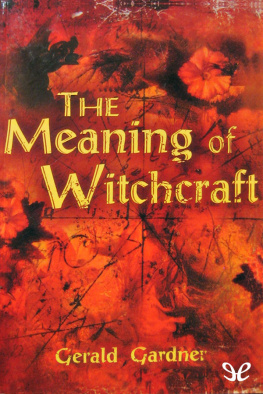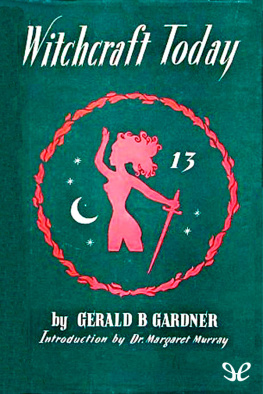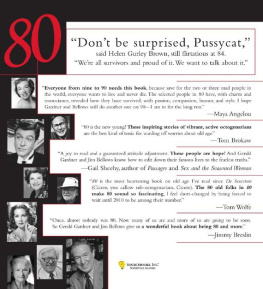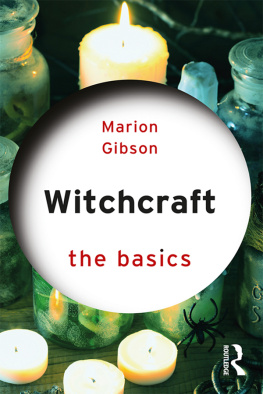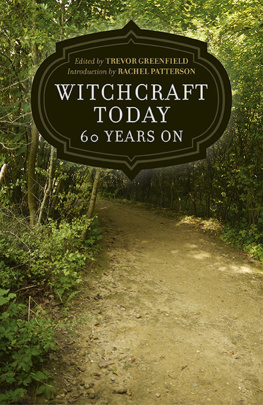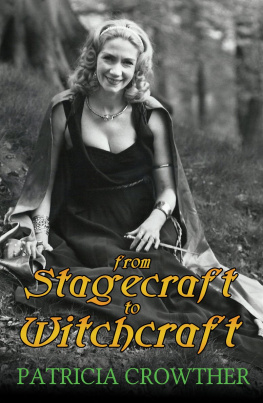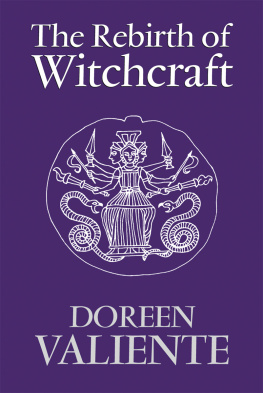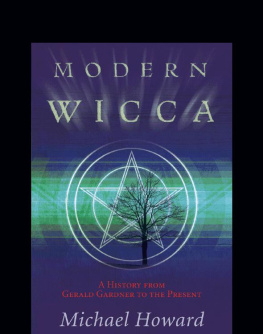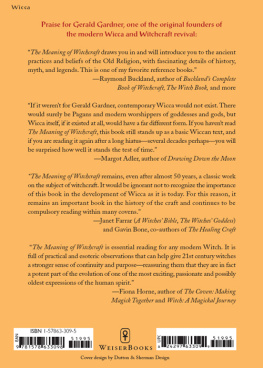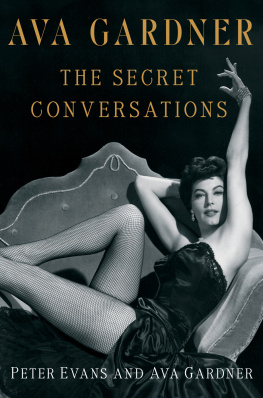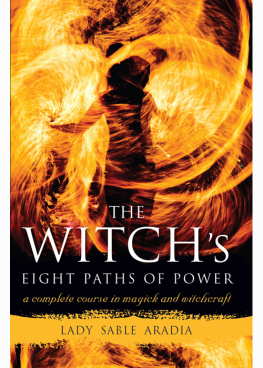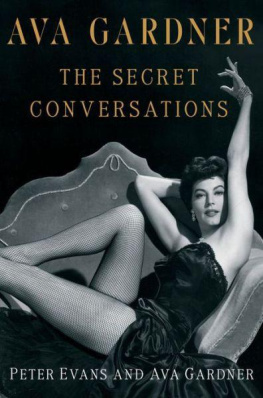Gerald Gardner - The Meaning of Witchcraft
Here you can read online Gerald Gardner - The Meaning of Witchcraft full text of the book (entire story) in english for free. Download pdf and epub, get meaning, cover and reviews about this ebook. year: 1959, publisher: ePubLibre, genre: Religion. Description of the work, (preface) as well as reviews are available. Best literature library LitArk.com created for fans of good reading and offers a wide selection of genres:
Romance novel
Science fiction
Adventure
Detective
Science
History
Home and family
Prose
Art
Politics
Computer
Non-fiction
Religion
Business
Children
Humor
Choose a favorite category and find really read worthwhile books. Enjoy immersion in the world of imagination, feel the emotions of the characters or learn something new for yourself, make an fascinating discovery.
- Book:The Meaning of Witchcraft
- Author:
- Publisher:ePubLibre
- Genre:
- Year:1959
- Rating:4 / 5
- Favourites:Add to favourites
- Your mark:
- 80
- 1
- 2
- 3
- 4
- 5
The Meaning of Witchcraft: summary, description and annotation
We offer to read an annotation, description, summary or preface (depends on what the author of the book "The Meaning of Witchcraft" wrote himself). If you haven't found the necessary information about the book — write in the comments, we will try to find it.
The Meaning of Witchcraft — read online for free the complete book (whole text) full work
Below is the text of the book, divided by pages. System saving the place of the last page read, allows you to conveniently read the book "The Meaning of Witchcraft" online for free, without having to search again every time where you left off. Put a bookmark, and you can go to the page where you finished reading at any time.
Font size:
Interval:
Bookmark:

Thought to be the father of modern witchcraft, Gerald Gardner published The Meaning of Witchcraft in 1959, not long after laws punishing witches were repealed. It was the first sympathetic book written from the point of view of a practicing witch. The Meaning of Witchcraft is an invaluable source book for witches today. Chapters include: Witch's Memories and Beliefs, The Stone Age Origins of Witchcraft, Druidism and the Aryan Celts, Magic Thinking, Curious Beliefs about Witches, Signs and Symbols, The Black Mass, Some Allegations Examined. The Meaning of Witchcraft is a record of witches' roots-and a tribute to a founding pioneer with the courage to set that record straight.

Gerald Gardner
ePub r1.0
Sharadore06.02.14
Original Title: The Meaning of Witchcraft
Gerald Gardner, October 1959
Cover Adaptation: Sharadore
Digital Editor: Sharadore
ePub base r1.0
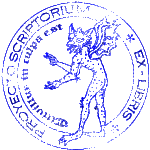
GRAND OLD MAN OF WITCHCRAFT
By
DR. LEO LOUIS MARTELLO
Gerald B. Gardners biography has been published many times, including a chapter on him in my own Witchcraft: The Old Religion. For the record his first Craft book was High Magics Aid published in 1949, a self-published work. His second was Witchcraft Today in 1954 and his last was The Meaning of Witchcraft, 1959, five years before his death. Prior to these he had written A Goddess Arrives, 1948, and Keris and Other Malay Weapons, 1936. The latter and High Magics Aid were published under his pen-name of Scire.
In Witchcraft Today the Bibliography has no listing of Charles Godfrey Leland and in this book he lists only Lelands Gypsy Sorcery. Yet a careful study of the Gardnerian Book of Shadows reveals that many passages were copied directly from Lelands Aradia. The secret name of the Goddess used in Gardnerian rites is also most revealing. His new converts shed lots of heat but not too much light, especially in view of all the hagiographical hogwash written about him. Those converts who saw the light preferred to keep others in the dark. This is characteristic of all new converts to any faith. And today none of this matters as the Craft The Old Religion Paganism has grown and expanded worldwide where the myths of the past, the factual inconsistencies, the claims and counterclaims fade into insignificance. The stress is on spontaneity rather than rigid rituals.
Gardner was the apostle of modern Witchcraft, whether he was ever given a third degree initiation or not. And many who have claimed to be Traditional or Hereditary as opposed to Gardnerian, give themselves away by both the rites and the tools used in their ceremonies, traceable to Gardners influence. If Gardner published his books without permission from his High Priestess there are thousands today who can be grateful that he did. Ditto Alex Sanders whose Book of Shadows is a direct replica of Gardners, with minor variations. The point is that if one is not initiated into a genuine coven, that doesnt make their initiation invalid. Attraction to the craft is an inner calling and even self-initiations are valid. As Ive said many times, an initiation depends more on the one receiving it than on the one giving it.
Pioneer, publicist, advance pressman, Gardner was the right man for the right time, a channel, who tapped the dormant spiritual reservoir of thousands. Not his faults, nor his distortion or omission of certain facts, not the matter of his idiosyncratic existence but the spirit of his life and works, these live on. Without Gardner there are many today, regardless of what they call themselves, who simply wouldnt exist not as Witches or Pagans. For those who believe in giving the devil his due the least they can do is pay tribute to Gardner who was neither devil nor saint just the Grand Old Man of Witchcraft!
THE WITCH CULT IN BRITAIN
My directorship of the Museum of Magic and Witchcraft at Castletown, Isle of Man, brings me a great deal of correspondence from all parts of the world; some interesting, some abusive (a very little, just enough to enliven matters), some fantastic, and some funny in all senses of the word.
However, my more serious correspondents want to know the origin of witchcraft. Where, they ask, did it come from? What is behind this thing that obsessed the minds of men for centuries? Is it an underground cult of devil-worship? A dark thread running through history? An irruption of the supernatural into normal life? Or is it an enormous delusion? What is the meaning of it all?
This is a matter which of late years has exercised the ingenuity of a number of writers. These may be roughly divided into three schools. Firstly, those who take the severely rationalist view that witchcraft was a kind of mass hysteria, arising from psychological causes. Secondly, those who maintain that witchcraft is real, and that it is the worship and service of Satan, in whom its devotees appear to be great believers. This is the attitude taken by that very prolific writer, the late Montague Summers, and his many imitators. Thirdly, that school, headed by anthropologists like Dr. Margaret Murray, which has tried to look at the subject without either superstitious terrors and theological argument on the one hand, or materialistic incredulity on the other. This school of thought maintains that witchcraft is simply the remains of the old pagan religion of Western Europe, dating back to the Stone Age, and that the reason for the Churchs persecution of it was that it was a dangerous rival. I personally belong to this third school, because its findings accord with my own experience, and because it is the only theory which seems to me to make sense when viewed in the light of the facts of history.
Perhaps I had better state briefly what that experience is. I am at present the Director of the only museum in the world, so far as I know, which is exclusively concerned with magic and witchcraft. I was a Civil Servant in the Far East (Malaya) until my retirement, and I made a large collection of magical instruments, charms, etc., which formed the nucleus of the present collection here. I am an archaeologist and an anthropologist, and through these studies I became interested in the part play in the life of mankind by magical beliefs, and by what people did as a result of these beliefs.
When I was out East, before I had any contact with witchcraft in Britain, I investigated much native magic without finding anything which could not be explained by telepathy, hypnotism, suggestion or coincidence, and frankly I considered magic as an instance of the curious things that people will believe. In those days I was very much interested in Dr. Margaret Murrays theory that witchcraft was the remains of an ancient religion; but as all authorities seemed agreed that while there was evidence that some people may have been witches, there was not the slightest evidence that witches had ever been organised into covens; and as Charles Godfrey Leland, who had known many witches in Italy and elsewhere, and wrote a lot about them, never mentioned any coven or any organisation, I dismissed witchcraft as something which had possibly happened once, but even if it had existed it had been burnt out three hundred years ago.
Font size:
Interval:
Bookmark:
Similar books «The Meaning of Witchcraft»
Look at similar books to The Meaning of Witchcraft. We have selected literature similar in name and meaning in the hope of providing readers with more options to find new, interesting, not yet read works.
Discussion, reviews of the book The Meaning of Witchcraft and just readers' own opinions. Leave your comments, write what you think about the work, its meaning or the main characters. Specify what exactly you liked and what you didn't like, and why you think so.

